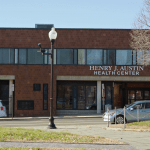Hi, please tell us a little about yourself.
My name’s Susan Jones I’m a registered Dietitian/Nutritionist at Henry J. Austin health center in Trenton. Henry J. Austin is a federally qualified health center, and we provide various medical services to the urban population of Trenton New Jersey. I’ve been a dietitian for almost 40 years I’m also a community member and live in Trenton. I’m dedicated to improving the health and social determinants of care in our community.
How have you incorporated a focus on unmet social needs into the care you provide to patients with diabetes?
One of the things that I find helpful that I’ve experienced in my career is that I’ve worked for a food bank in our area that covers the Trenton area. In that role, I visited almost all of the food pantries and emergency food agencies in our county. So, I have a good understanding of where the food resources are in the community. I can help with that when patients including the diabetics are having trouble budgeting their food and with food insecurity.
How is your approach to diabetes care different from what patients would experience in other healthcare facilities?
To build on that idea of my background in food insecurity. I feel like I have a lot more awareness of that challenge in the community. Using some technology resources like a program called NOW PAL. I can connect them to these resources really quickly. I can see where they live and point out where the closest food pantry may be, and then I also know where the resources as far as diabetic classes and things like that are that may support their self-management.

How has COVID-19 changed your work in diabetes care?
Since COVID started I’ve been 100 telemedicine. Sometimes on-site most of the time at home and it has been great that we were able to reach our patients in the beginning of the pandemic. I think it was a fresh new exciting technology that patients enjoyed. I think as time has gone on it has remained valuable to some patients but i guess it can’t take the place of one-on-one. So, you know I think it’s provided a valuable resource, but i feel that some patients have definitely lost ground in their progress with their self-management through the pandemic.

Are there any lessons or changes from the pandemic that we should carry over in diabetes care?
I feel that the lessons through the pandemic that should be carried forward are that telemedicine is a valuable tool. That technology can really provide resources ideas reminders and things to patients but it doesn’t take the place of one-on-one contact. I feel that the patients really knowing where they stand with lab work that wasn’t getting done is crucial. I’m usually able to do point-of-care a1cs in the office. That I was unable to do. I think having data for the patients to really show them where they are can make an impact and I feel that that was missing. Patients were just lost to care in general going forward if telemedicine was a big part of practices and in my practice. I think reaching out and reminding patients of their appointments whether it’s text or some other means is so crucial; because you don’t look at their text and get the link for the telemedicine. Because they may be busy on the phone they don’t see it, and get that connection. Whether getting them to pick up the phone or get on the visit can be a barrier.
